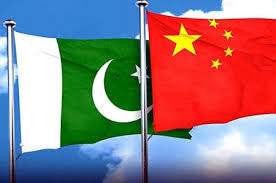Staff Reporter
Beijing
Pak-China cooperation in bee products sector enjoys broad prospects, says Yang Rong, chairman of China Bee Products Association (CBPA), Gwadar Pro reported on Sunday.
“Billion Tree Honey Initiative launched by PM Imran Khan last Monday will be an available and workable project to alleviate poverty and develop the bee products sector.
Also, it will lead to broad prospects of Pak-China cooperation in this field,” Yang Rong said.
Rich natural and human resources have equipped Pakistan favorable conditions to develop the bee products industry.
Most of Pakistan’s land is subtropical, which provides a warm climate for vegetating nectariferous plants. “Meanwhile, mature agriculture and diverse fruit plantation also lay a foundation for industrial development,” Yang analyzed.
He said, “development of the bee products sector, a typical labor-intensive industry, will effectively alleviate local poverty in Pakistan. Actually, this method has made fruitful achievements in China. A lot of Chinese local governments have chosen developing apiculture since 2013 and successfully solved poverty even led the regions to prosperity. Considering the problems of employment and rural revitalization, the mature experiences of China are also suitable for Pakistan.”
The apiculture in Pakistan is facing the challenges of pest and obsolete technology which can be solved under Pak-China cooperation.
“Bee mite has been reckoned as one of the biggest menaces of Pakistani agriculture. From 1908 to 1979, Pakistan tried to import bees and develop apiculture 17 times, but all of those attempts failed due to bee mite.
Yang said, “Nowadays, through scientific breeding, drug treatment, and the most advanced physical treatment, Chinese beekeepers have controlled it very well and at a world leading level. We can share all of those techniques with Pakistan to improve its apiculture.”
“Under CPEC agriculture cooperation, we’d love to share other experiences and techniques with our iron brother as well, such as scale development of apiculture, vegetating nectariferous plants, scientific payoffs, bee species breeding and so on,” Yang added.










